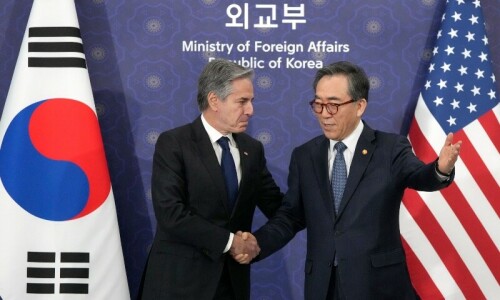The growing informal economy is a major concern of policymakers trying to boost tax revenues and widen documentation primarily through administrative measures.
Development economists, analysts, and stakeholders suggest an alternate path to documentation: the introduction of incentivised voluntary compliance by enterprises in the informal sector, which has worked well in other countries.
Hopes are pinned on the fact that the required measures in this direction will be initiated in the budget for fiscal year 2025. The government has been mulling on ways to spur the growth of small and medium-sized industries, including stepping up affordable bank financing to stimulate investment in the sector.
Researchers suggest that the informal sector can best be documented by offering a hassle-free business environment, a rational tax system credit at affordable rates, etc. Small enterprises would thus be able to gradually scale up their operations to grow into medium-sized and big enterprises.
An analyst says the process of the informal sector integrating into the formal economy needs to be simplified to bring about a fundamental structural change in the economy.
Researchers raise concerns about the growing informal sector and associated high income inequality, poverty, and low SDG progress
Even big businesses reportedly outsource some of their activities to the informal sector or their subsidiaries due to the cost of doing business in an over-regulated formal economy.
It is well recognised that too many regulations have stifled the diversification of economic activities in the formal sector and severely constrained the potential of small firms to scale up their business operations.
It is not clear at this point whether the formal sector is shrinking or expanding. Some studies show that the informal sector complements the formal sector by, for example, providing cheap inputs to large firms.
Various international studies show that, regardless of the nature and causes of informality, countries with larger informal sectors tend to have less access to finance for the private sector, lower labour productivity, slower physical and human capital accumulation, and smaller fiscal resources.
In the case of Pakistan, the investment-to-GDP ratio has plunged to 13.1 per cent during the current fiscal year, missing the annual target of 15.1pc and falling to the lowest level in 50 years, according to the National Accounts Committee.
Informality is also associated with higher income inequality, poverty, and less progress toward Sustainable Development Goals (SDGs).
In Pakistan, a sizable segment of small and medium-sized industries operates in the informal sector, which employs 72.5pc of the country’s non-agricultural labour force.
The informal sector is, on average, less productive than the formal sector because it tends to employ more low-skilled workers, has more restricted access to funding, services, and markets, and lacks economies of scale.
A recent joint study by the Small and Medium Enterprises Development Authority (SMEDA) and the International Labour Organisation provides fresh evidence of the informal economy’s continuing growth.
The total size of the informal sector, growing over time, is currently projected to be an enormous $457 billion, in sharp contrast to the size of the formal economy, which was officially estimated at $340bn in 2023.
Then, there is a related problem of informal institutional decision-making that may not necessarily be within constitutional norms.
In his book ‘Pakistan, Institutional Instability and Underdevelopment: State, People and Consciousness’, Dr Akmal Hussain dwells on how informal decisions are related to formal rules within a constitutional order.
Analysts, however, see a positive development with Khyber Pakhtunkhwa’s Chief Minister Ali Amin Gandapur apparently reaching an arrangement that ‘allows him to stick to his party’s politics while he works with Islamabad on matters related to governance and administration of his province’.
After interaction with federal ministers during and after a recent Special Investment Facilitation Council (SIFC) meeting, the KP chief minister reportedly made a significant observation: “Though the PML-N stole our mandate, we have to work together for the good of the country.”
He, however, made it clear that the KP government would ‘never compromise’ on its share of resources. He revealed that the issue was raised in a recent SIFC meeting, and a commitment was made that “The province’s resources, rights and share of the people will be protected.”
Given the emerging domestic and external scenario, political economist Niaz Murtaza says that state elements now face a unique challenge in sustaining hegemony over the masses.
One of the challenges facing SIFC is to stimulate private domestic investment on a priority basis in a way that works for the majority and helps reduce social tensions.
Researchers say informal workers are largely excluded from formal social safety nets. They have low incomes and limited buffers, such as savings or access to government support programs.
The widespread concern over the growing informal economy calls for a sound strategy to curb this trend as quickly as possible.
Published in Dawn, The Business and Finance Weekly, June 3rd, 2024










































Dear visitor, the comments section is undergoing an overhaul and will return soon.